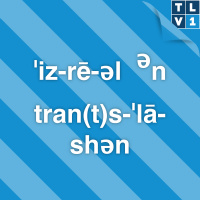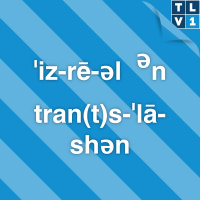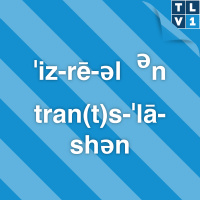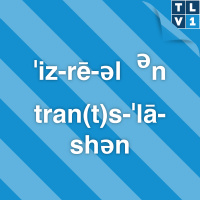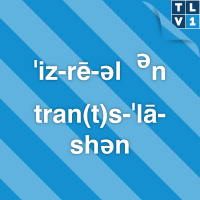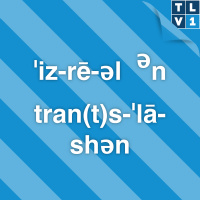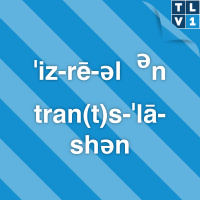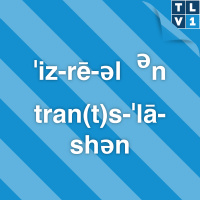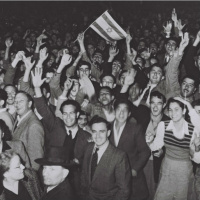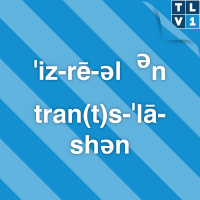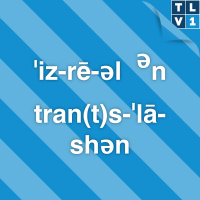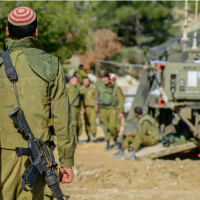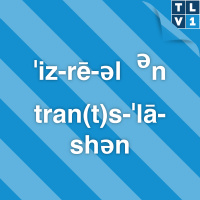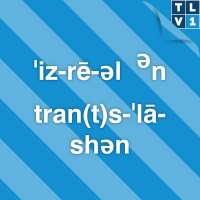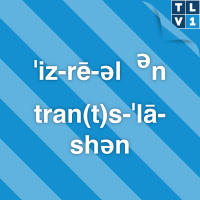Israel In Translation
- Autor: Vários
- Narrador: Vários
- Editora: Podcast
- Duração: 44:23:12
- Mais informações
Informações:
Sinopse
Exploring Israeli literature in English translation. Host Marcela Sulak takes you through Israels literary countryside, cityscapes, and psychological terrain, and the lives of the people who create it.
Episódios
-
"The Seven Good Years" Part II: Bombs away
08/07/2015 Duração: 08minIn our second installment, host Marcela Sulak reads an essay from Etgar Keret's memoir, The Seven Good Years, called "Bombs Away." We hear how Keret and his wife Shira Gefen cope after receiving "inside" reports about an imminent Iranian nuclear attack on Israel. "Gradually my wife also began to realize the advantages of our shabby existence. After she found a not-exactly-reliable news site warning that Iran might already have nuclear weapons, she decided it was time to stop washing dishes. “There’s nothing more frustrating than getting nuked while you’re putting the soap in the dishwasher,” she explained. “From now on, we only wash the dishes on an immediate-need basis.”" Hear how this attitude escalates in much the same way as the panic surrounding the Iranian nukes. Listen to Part I of our dip into Keret's memoir, in which Marcela reads the opening essay - Keret's son is born on the day of a terror attack. Text:The Seven Good Years. Translated by Sondra Silverston, Miriam Shlesinger, Jessica Cohen, and
-
Etgar Keret's "The Seven Good Years": Part I
01/07/2015 Duração: 06minHost Marcela Sulak reads the opening essay from Etgar Keret's memoir The Seven Good Years, about the seven years between the birth of his son and the death of his father. Marcela also explains why, although Keret is Israeli, the book was never published in Hebrew nor released in Israel. As Keret waits in the hospital for his wife to give birth, he's surrounded by the victims of a terrorist attack that has just occurred, and is pestered by a journalist looking for an "original" reaction to the mass murder. "Six hours later, a midget with a cable hanging from his belly button comes popping out of my wife’s vagina and immediately starts to cry. I try to calm him down, to convince him that there’s nothing to worry about. That by the time he grows up, everything here in the Middle East will be settled: peace will come, there won’t be any more terrorist attacks, and even if once in a blue moon there is one, there will always be someone original, someone with a little vision, around to describe it perfectly." The
-
Zeruya Shalev's teddy bear wars
24/06/2015 Duração: 07min"His small, perpetually dirty hands with their closely-clipped nails fumble with the space around him, seeking their way to me, here he is, kneeling on the carpet at my feet, apparently defeated, the crown of his head craning toward my lap, but then he straightens up, grabs one of the stuffed animals and hurls it at me." Host Marcela Sulak reads the opening of Zeruya Shalev's novel Thera, translated by H. Sacks & Mitch Ginsberg. Shalev was born in 1959 on Kibbutz Kinneret, and in the background you can hear songs by other famous natives of the kibbutz. Text: Thera, by Zeruya Shalev. Translated by H. Sack & Mitch Ginsberg, The Toby Press, 2010. Music: Liel Kolet - ImaBenny Amdursky - Ani Gitara (written by Naomi Shemer)
-
Scorched by the Sun
17/06/2015 Duração: 08minI sit at the entrance of the labyrinth in which my country has vanished. I don’t know why my country is lost or what I should do to reclaim it and the sunlight, the good breeze, the songbirds in groves of oleander and acacia... Moshe Dor was born in 1932 in Tel Aviv. He served in the Haganah and then became a correspondent for the Israel Army magazine. One of the founders of the literary journal Likrat, Dor has served as literary editor and member of the editorial board of Maariv newspaper since 1958. His work has been published abroad in some 30 languages. Host Marcela Sulak reads poems from the collection Scorched by the Sun, translated by Barbara Goldberg and Moshe Dor, as we listen to his words sung by various artists. Text: Scorched by the Sun, by Moshe Dor. Translated by Barbara Goldberg and Moshe Dor. The Word Works, 2012. Music: Chabad Choirs - Erev Shel Shoshanim (lyrics by Moshe Dor)Traditional - Tapuach Chinani (lyrics by Moshe Dor)Hagesher - Night Of Roses (lyrics by Moshe Dor)
-
Tal Nitzán's interior design, exterior chaos
10/06/2015 Duração: 04minTal Nitzán is the author of five poetry books and one children's book, and the editor of three poetry anthologies. Born in Jaffa of Argentine descent, she has resided in Buenos Aires, Bogotá, and New York. Here is an extract from the poem 'Mountain High,' which depicts the tall, oppressive buildings of Tel Aviv, where Nitzán is currently living: I went up to the roofone day in Maya day that spread upon the sky a sheetthe shade of mustard of an orange of an H-bomband the long arduous craving for rainrose as a howl from the parking lots Host Marcela Sulak also reads Nitzan's poems 'Canary,' 'Grace,' and 'A Cart with a Mare' - the latter is set in the Gaza Strip and inspired by a Haaretz report by Amira Hass from May 2004. Text: Poetry International Rotterdam Further Reading: At the End of Sleep (Restless Books, 2014, e-book).To the Inner Court (with artist Tsibi Geva, Even Hoshen Books 2015). Music: Anat Gutman feat. Tal Nitzán - Mountain HighAvshalom Cohen - A Cart With A Mare (Agala Im Sussa)
-
My Russian Grandmother and Her American Vacuum Cleaner
03/06/2015 Duração: 08minYears passed, memories settled and were invented, stories were told and sprouted different versions, and all the while the American sweeper sat in a locked bathroom in Nahalal. Meir Shalev was born in the village of Nahalal, Israel’s first moshav, in 1948. He is the grandson of the amazing Grandma Tonia, who arrived in Palestine by boat from Russia in 1923, and who devoted her life to battling against the biggest enemy in the new land: Dirt. Host Marcela Sulak reads from Shalev's memoir, My Russian Grandmother and her American Vacuum Cleaner, translated by Evan Fallenberg. Texts: My Russian Grandmother and Her American Vacuum Cleaner: A Family memoir, by Meir Shalev. Translated by Evan Fallenberg. Schocken Books, 2011. Music: Arik Einstein - HaTsarich HaZe (written by Yehonatan Gefen)HaKeves HaShisha Asar - KeShe Ehiye Gadol (written by Yehonatan Gefen)Yoni Rechter and Yehudit Ravitz - Layla Tov (written by Yehonatan Gefen)
-
A circle of friends
27/05/2015 Duração: 08minDalia Betolin-Sherman was born in Ethiopia in 1979. In 1984 she crossed Sudan by foot and immigrated to Israel with her parents and sister. Her short story collection, When the World Became White, came out in Hebrew in 2013. Host Marcela Sulak reads from one of its stories - “Circle of Friends” - translated by Ilana Kurshan. Adva stands there looking at herself in the mirror of the girls’ bathroom... Today she has a special hairdo in honor of the performance, and she examines it from all angles... The rest of the girls cluster around her and try to push their way in. Some of them stand on their tip toes, and climb over each other, but everyone gets only a small section of the mirror. We are last. We wait until they and the ordinary girls leave. We don’t bother with the hair that sprouts wildly from our heads in a “fro,” as the other kids call it. Find out what happens to Adva's beautiful hair during the performance... Texts: “Circle of Friends,” by Dalia Betolin Sherman, translated by Ilana Kurshan. The I
-
The Dawning of the Day
20/05/2015 Duração: 08min“Ezra, what would you call the story told by my violin?” Ezra was silent... When he got up to leave, a phrase from one of the dawn hymns occurred to him and stood in front of him, pleading. He said to Rahamim, “I would call it, The Dawning of the Day.” Host Marcela Sulak reads from Haim Sabato's story, The Dawning of the Day, in honor of Shavuot - the Jewish festival that celebrates the giving of the Torah by God to the Israelites on Mt. Sinai. We hear about two friends who end up avidly studying the Torah together: Rahamim, a gifted, blind violinist, and his friend Ezra who comes to clean his house and tell him stories. Texts: Haim Sabato, The Dawning of the Day: A Jerusalem Tale. Translated by Yaacab Dwek. The Toby Press, 2008. Music: Shishu Vesimchu Besimchat Chag - Shirei ShavuotThe Spielberg Jewish Film Archive - Palestine In Song And DanceKabbalah Music - Yah Ribon 'OlamOfra Haza - Im Nin'Alu
-
Desert flowers with deep roots
13/05/2015 Duração: 07min“... Hanging by a thread, my fathers jostle together, A sleeve of Hispania cloth permeated with the scent of jasmine On an austere robe from the lands of years gone by On a breeze bearing blows, payes and pelts…” So reads a section from “Fathers,” a poem by Tel Aviv-born novelist, poet, and theater director Michal Govrin, whose poetry our host Marcela Sulak introduces to us today. The daughter of an Israeli pioneer father and a mother who survived the Holocaust, Govrin’s work is concerned with the legacy of trauma left to children of Holocaust survivors. Govrin has described her poems as the flowers of a desert plant with very deep roots; some have roots as deep as fifteen feet, but when we see the flower we never imagine how much of the plant remains invisible to the eye.
-
Israeli poetry's brightest flame
06/05/2015 Duração: 06minTonight is Lag B'Omer, the Jewish holiday of light celebrated by lighting bonfires. Here's a glimpse of poet Agi Mishol's very own Lag B'Omer bonfire: You piss on my love as if it were a bonfire, extinguishing it ember by ember with the arrogance of the perfect crime... One of Israel's most popular living poets, Agi Mishol's work has been described thus by literary scholar Dan Miron: In contemporary Israeli poetry, intense, white flames appear against the dark, burning background, whose smoke is greater than the fire… Agi Mishol’s poetry is one of the brightest of these flames. Texts: “Sermon at Latrun” translated by Joanna Chen “Wax Flowers” translated by Joanna Chen Further Reading: Look There, translated by Lisa Katz, Graywolf Press, St. Paul, MN, 2006 Music: Rivka Zohar - Rabi Akivah (lyrics by Dahlia Ravikovitch) Maya Mishol - Rakavet Tachana
-
A desert oasis through the eyes of a blind poet
29/04/2015 Duração: 07minA few weeks ago, Erez Biton was awarded the Israel Prize for literature, becoming the first Mizrahi Jew to receive the prize. Of Moroccan descent, he was born in Algeria in 1942 and arrived in Israel in 1948 via France. After a joint reading with Yehuda Amichai in Arad, a town bordering the Negev and Judean Deserts, the two poets traveled back to Jerusalem together. Biton asked Amichai to describe for him the essence of the desert as seen along the road. In response, Amichai held Bitton's hand for a few moments, saying nothing. Then Biton said: "Now I understand." Host Marcela Sulak reads the short poem Biton wrote about this experience, "To Say Desert." And she explains how his work is connected to his blindness, emphasizing the unity between people and their landscape. Texts: Thanks to Mitch Ginsberg and his The Times of Israel article. Poems “To Say Desert,” “The Dog and His Master,” and “The Wail of Women” translated by Tzippi Keller. Further reading: The Modern Hebrew Poem Itself, Ed. Burnshaw, Carmi,
-
A night to remember on the road to independence
22/04/2015 Duração: 09minWe look at how Amos Oz, in his memoir A Tale of Love and Darkness, describes what happened the euphoric night the UN voted to establish a Jewish state.
-
Maya Bejerano's poetry lab
15/04/2015 Duração: 08minMy face is beautiful when I am understood, it expands to the size of a broad gate in hundreds of shades of color on the paper in the clay’s angles and cuts. These are the final lines of Maya Bejerano's poem "Data Processing 60," translated by Miri Kubovy, which host Marcela Sulak reads in today' podcast. She also reads "Data Processing 10." As you can tell, poetry is a kind of linguistic and emotional laboratory for Bejerano - a place to process a variety of data. Bejerano was born in Kibbutz Elon in 1949. She's published ten volumes of poetry, a children’s book, a book of essays, and two short story collections, which have won her the Prime Minister's Prize, the Bernstein Prize, and the Bialik Prize. Her poems have also been set to music, and we listen to some during the podcast. Texts: Poets on the Edge: An Anthology of Contemporary Hebrew Poetry. Translated and edited by Tzippi Keller. Suny Press, 2008. The Defiant Muse: Hebrew Feminist Poets from Antiquity: A Bilingual Anthology. Feminist Press CUNY,
-
Jewish travel: A Passover reading of Moses' personal memoir
08/04/2015 Duração: 08minIf Passover is the defining Jewish holiday, then Yehuda Amichai is Israel's defining poet. Host Marcela Sulak reads some of his interpretations of the foundational Passover narrative, as we listen to music set to his words. In his poem "Jewish Travel," Amichai imagines Moses standing on Mount Nebo, staring into the Promised Land - a land he would never enter: He yearned for the land of Canaan he would never see,but he turned east, toward the desert of those forty years,and wrote the Torah as a travel book,a memoir, every chapter with something very personalthat was his alone... Text: Open Closed Open, by Yehuda Amichai. Translated by Chana Bloch and Chana Kronfeld. Harcourt, Inc., 2000. Music: The Place In Which We're Right - Yoni Rechter and Rona Kenan By The Well Of My Birthplace - Ofra Haza God Pities Kindergarden Children - Suzy Miller
-
Mysticism, messianism, and divine music
01/04/2015 Duração: 08minI call you now to answer me despite my prayer’s silence in the mornings despite the moth’s presence in my closet despite my fullness with rusted talk These are lines from Haviva Pedaya's poem "When I Come From the Place of Crying," translated by Harvey Bock, which host Marcela Sulak reads. Pedaya was born into an Iraqi family of rabbis and Kabbalists. She is a professor of Jewish history at Ben Gurion University specializing in mysticism, and her poetry echoes her scholarly research on time and place; center and periphery; and messianism. Pedaya is also involved in musical and artistic projects; she founded the Yonah Ensemble which has succeeded in revitalizing liturgical and mystical music of the Near East. Many of her poems have been put to music, and we hear some in the podcast. The text can be found at Poetry International Rotterdam Music: Shai Tsabari - The King (words by Haviva Pedaya) Yuval Gershtein and Maureen Nehedar - There's A Very Small Place
-
David Grossman's echo of reality
25/03/2015 Duração: 08min"After we finished sitting shiva, I went back to the book. Most of it was already written. What changed, above all, was the echo of the reality in which the final draft was written."
-
The she-fox under the thornbush
18/03/2015 Duração: 07minAccording to Anne Lerner, the poet Esther Raab presented herself to her first readers in 1922 with the lines: I am under the thornbush Nimble, menacing, Laughing [at] its thorns To greet you I straightened up. At a time when Hebrew poetry by women was just beginning to be published, these lines introduced many of the themes and poetic devices that came to characterize Raab’s poetry and the way it was read: A stark landscape, an unconventional female central character, a hint of a biblical inter-text, bold color, a linkage between eroticism and nature, and sparse, idiosyncratic punctuation. Host Marcela Sulak reads Raab's poems "Holy Grandmothers in Jerusalem" and "Night" (translated by Shirley Kaufman), and "She-fox" (translated by Kinereth Gensler), which ends with these lines: A hungry she-fox lifts her head to the Pleiades, a cold star mirrored in her eye could be a tear in her pupil. The cub will suckle at life’s sad marrow— the howl of foxes splits the night. Text: The Defiant Muse: Hebrew Feminist
-
Verses from a Christian Arab village on the frontier
11/03/2015 Duração: 05minWe met the Christian Arab village of Fassuta, on the north-western slope of Mount Meron in the Upper Galilee, in a previous podcast: http://tlv1.fm/?p=30469 Host Marcela Sulak takes us there again to discover the work of Nidaa Khoury, who was born in Fassuta in 1959 and still lives there. Khoury’s seven collections of poetry include The Barefoot River, The Prettiest of Gods Cry, and The Bitter Crown, published in Israel, Lebanon, and Egypt. She is a senior lecturer at Ben-Gurion University and the subject of the recent film, Nidaa Through Silence. Khoury is a socially and politically engaged poet; she helped create the Path to Peace Organization; she founded the Association of Survival; and she works for the Association of Forty, which works for the full acceptance of the "Unrecognized Arab Villages" in Israel.
-
A perfectly modern Purim
04/03/2015 Duração: 08minIn the Bus/Purim Eve: Little kids in costume giggle happily real flower children and Margalit Tzan’ani sings “The Honey in the Groove” Today, host Marcela Sulak takes an unusual approach to Purim, reading excerpts from Tikva Levi’s Purim Sequence, translated by Ammiel Alcalay. We intersperse the first parts of Levi's poem, a Purim bus journey, with excerpts from Itzik Manger’s 'Megillah' — a retelling of the Purim story in the Book of Esther. Tikva Levi was a feminist activist Mizrahi Jew, born in Ashkelon of Iraqi parents. She died in 2012, at the age of 52. Her life was devoted to the educational rights of Mizrahi Jews in Israel. Text: Keys to the Garden. New Israeli Writing. Edited by Ammiel Alcalay. City Lights Books, 1996. Music: Songs of the Megilla - Itzik Manger Nafas - Rabih Abou-Khalil
-
Without shadows, the desert flames
25/02/2015 Duração: 10minThere is a strange flavor, seasoned with pomegranates and grapesfound in the desert when, without shadows, it flames;while rain rolls through the red dust of dirt trails,and it is possible to taste it in Jerusalem’s hills. These are the opening lines of an excerpt from Avraham Sutzkever's Lider fun Togbukh (Poems From a Diary, 1974-1981), read by host Marcela Sulak. Sutzkever was born in 1913 in today's Belarus. He was sent to the Vilnius Ghetto during WWII, from which he escaped and was flown to Russia. After the war he moved to Tel Aviv just before the founding of Israel. He died on January 20, 2010 in Tel Aviv at the age of 96 - you can hear an unusual account of his funeral in our previous podcast. The New York Times called him "The Greatest Poet of the Holocaust." In the background you can hear his poem 'Unter Dayne Vayse Shtern' - about, written, and composed in the Vilnius Ghetto - set to music by Gideon Brettler. Texts: Avraham Sutzkever translations by Maia Evrona A. Sutzkever. Selected Poetry an


